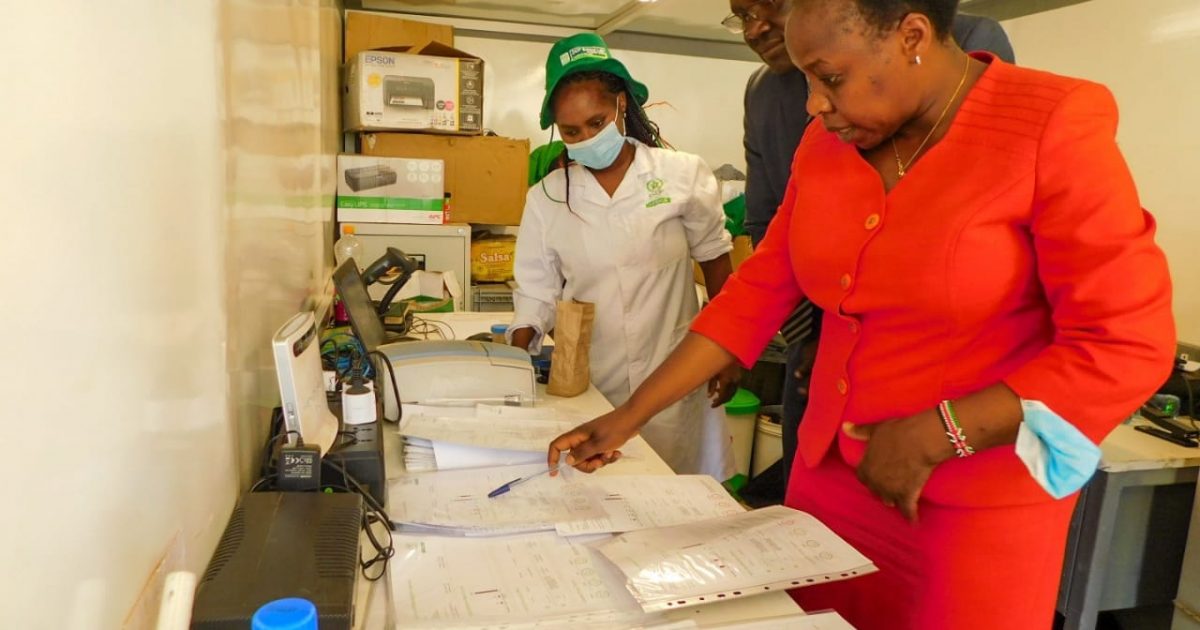Nakuru County Government is partnering with the private sector to conduct free soil sampling and testing to determine which soils need what type of fertilizers for them to be more productive.
County Executive Committee Member (CECM) for Agriculture, Livestock and Fisheries Immaculate Maina revealed that analysis of soils in the devolved unit showed that the acidity levels in most farms were way higher than the recommended level because of continuous use of inorganic fertilizers, in particular Diammonium Phosphate (DAP).
Dr Maina indicated that the county administration in collaboration with different partners, had so far helped over 5,000 farmers across the County to do free soil sampling and testing to determine the right type of cropping best suited for their type of soil.
“The partnerships are aimed at educating farmers to have the knowhow on their soil pH which enables them to be properly advised on what fertilizers to apply and the elements that are missing in order to fix them. You cannot manage what you do not understand or rather, what you do not know and therefore, for us to be able to manage the soils, we have to do soil testing,” the CEC stated.
While stating that her department had allocated Sh6 million in the current financial year to facilitate free soil testing by small holder farmers, Dr Maina noted that with soil testing and the right fertilizer, farmers can witness an increase in yields by between 50 and 150 percent.
Moving forward, she added, farmers should apply tailor-made or recommended fertilizer that has been informed by soil testing and that “addresses uniqueness of their soils given that the one-size-fits-all approach has greatly contributed to acidifying and deterioration of soils and with it decline in farmer yields”.
She spoke at Molo Township during the launch of a five year free soil sampling and testing programme by Office Chérifien des Phosphates (OCP) Africa. The organization is set to sample and test 1,000 samples of soil for farmers in Njoro, Rongai, Molo and Subukia Sub Counties.
Dr Maina said farmers have also been advised to have their soils tested regularly to determine the fertility levels; preferably every three years.
“Collecting and conducting soil tests each year serves as a report card for the soil. Soil test reports help in determining soil organic matter, pH, electrical conductivity and levels of important macro (phosphorus, potassium, calcium, magnesium) and micronutrients (boron, zinc, among others). These reports also help to estimate lime or sulfur application rates to increase or reduce soil pH, respectively,” advised the CEC
Dr Maina indicated that soils in most parts of Kenya are highly acidic and lack important micronutrients such as sulphur.
Soil Scientists at Kenya Agricultural and Livestock Research Organisation (KALRO) have proposed a number of remedies, including switching from Diammonium Phosphate (DAP) fertiliser to Nitrogen Phosphorous Potassium (NPK) and embarking on a national liming programme to reduce acidity.
According to a report compiled by KALRO, continuous use of DAP has been blamed for pumping phosphorous into the soil while ignoring other elements such as potassium and zinc. The problem of deteriorating soil fertility has been compounded by the fact that most farmers do not know the status of their soil.
Dr Maina stated that nutrient depletion varies with the intensity of field management, soil properties and landscape.
“Some of the negative effects of land degradation include decline in crop productivity, food insecurity, low returns on agricultural investment and environmental degradation,” she said.
The CEC expressed concern that traditional approaches towards soil fertility replenishment, including organic farming and low external input, have failed due to low availability of inputs by smallholders, leading to land degradation.
The county administrator pointed out they have been promoting soil fertility replenishment strategy based on integrated soil fertility management (ISFM) practices which advocate the use of both organic and inorganic fertilizers for balanced nutrient fertilization.
“This calls for precise and prescriptive fertilizer recommendations at the farm level which are based on precise soil testing to ensure increased, sustainable and profitable crop production. Adoption of innovative soil testing techniques that are rapid with a high output will help increase sustainable food production and hence food security,” Dr Maina explained.
In his remarks, County Agriculture Chief Officer Kibet Maina said soil fertility in the country is declining.
The Chief Officer observed that continuous cropping without sufficient application of nutrients and proper management of the soils, which leads to degradation, soil fertility in the country was declining at an alarming rate.
“For us to improve crop production, we need to look at the management of soils for 10 years to be able to be food secure. Managing optimum soil nutrient levels is the key to maintaining a sustainable and productive enterprise. Before a fertilization programme can be planned, it is important to know the cropping and soil fertilization history of the field,” said Mr Kibet..
Mr. Kibet indicated that there is no soil that cannot be cured with the modern analysis techniques and “ultra-modern machines capable of giving the correct fertilizer for specific plants and regions.
“Farmers need to maintain soil health because healthy soil helps to maintain its capacity to sustain the living system and protect the climate. Where applicable they should do liming where to raise soil pH and improve plant nutrients availability, soil structure and soil microbial activity. Our goal is to help farmers apply the right fertilizers for specific regions to correct the soil deficiency and enhance productivity,” offered the Chief Officer.
He added “Farmers should avoid the guesswork of applying fertilisers they are not aware of. Let them understand the type of soil they are planting their crops.”
Jane Ngugi and Hellen Kivaya





